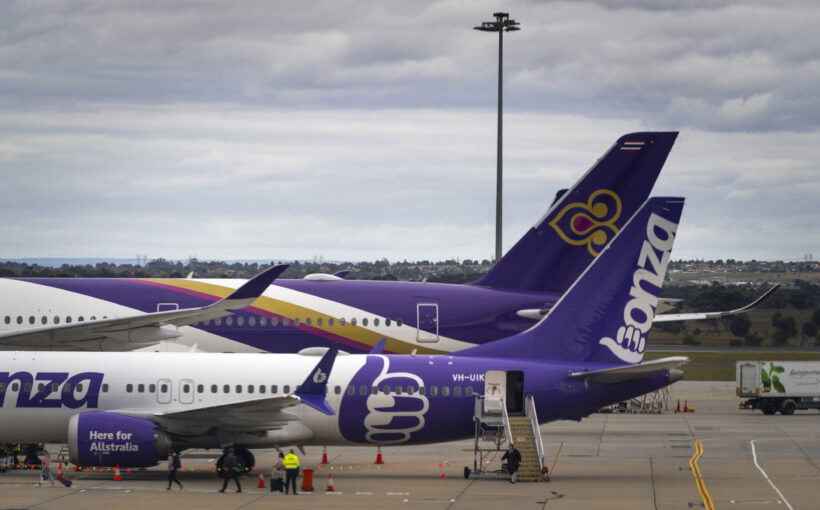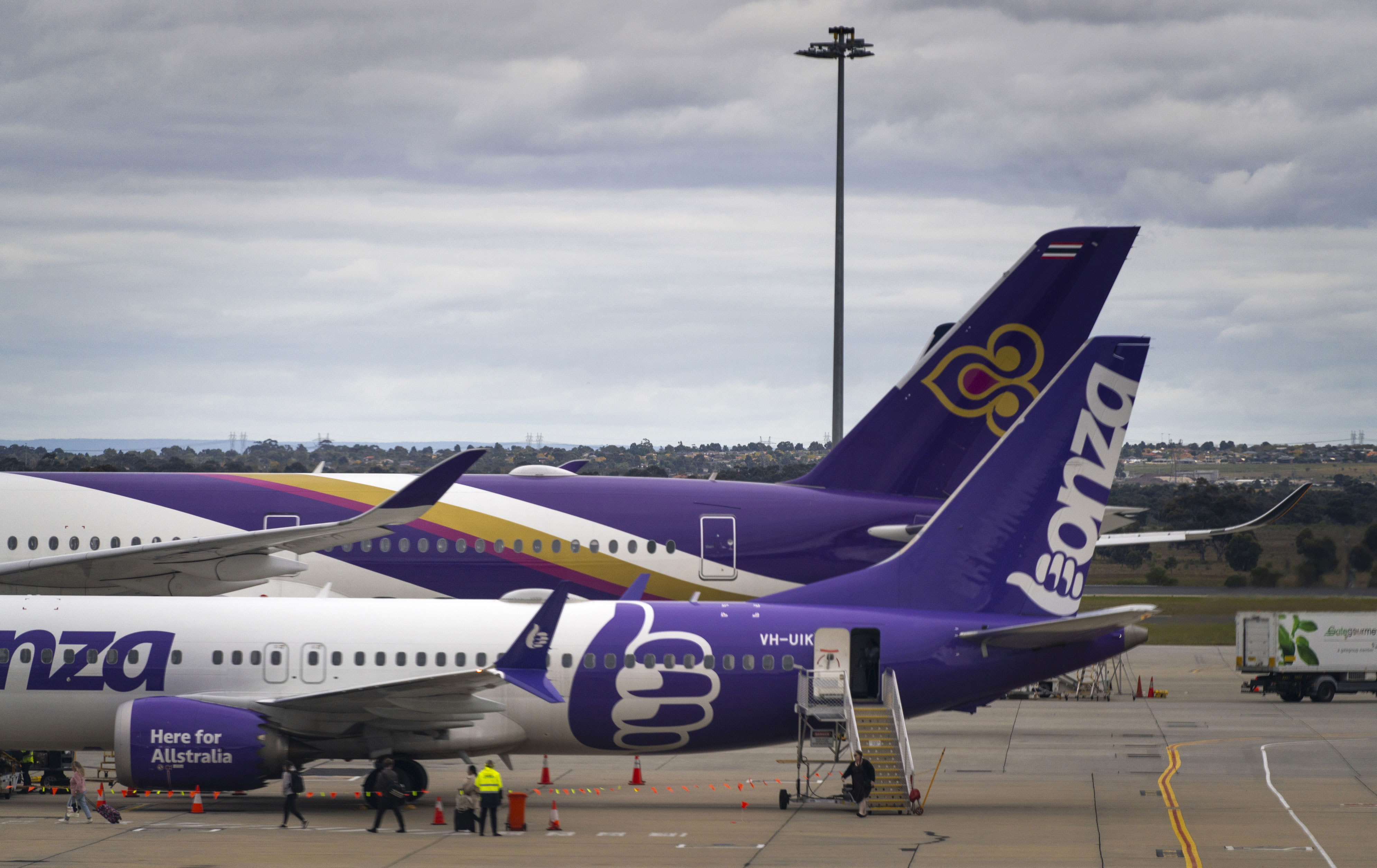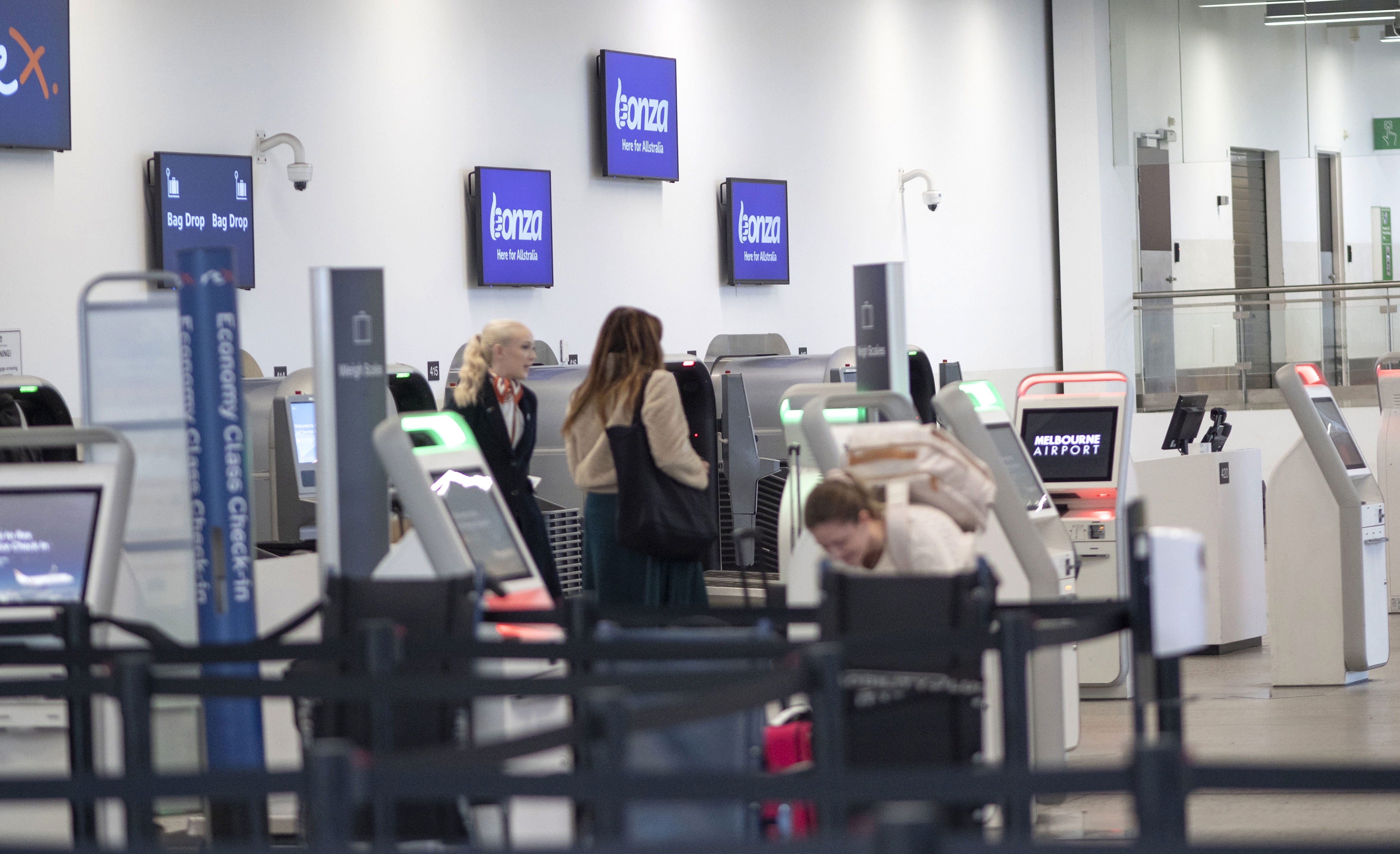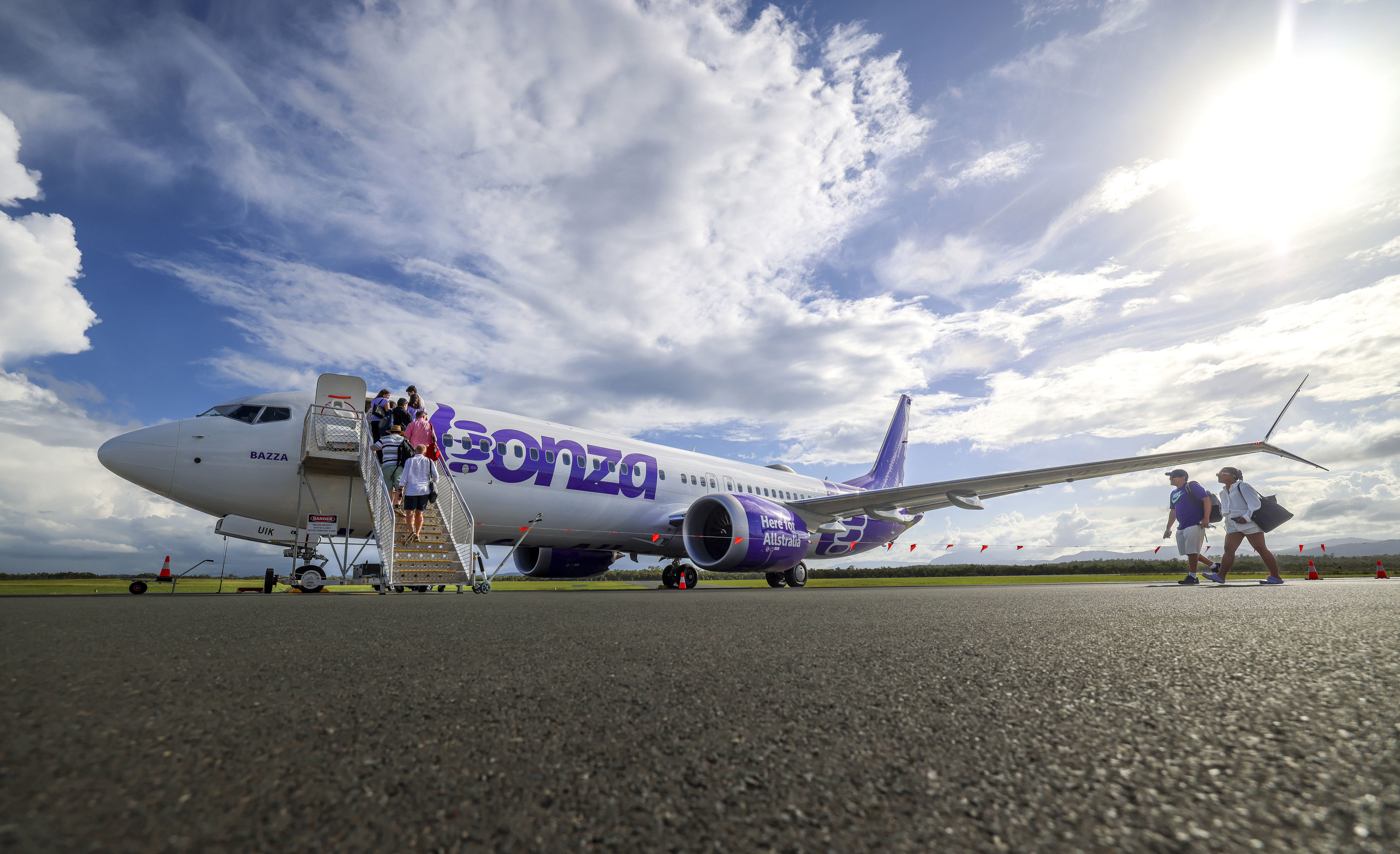Embattled airline Bonza flew tens of thousands of people on routes long ignored by Qantas and Virgin Australia, but Australia’s skies are a brutally tough market.
For now it’s uncertain if the death knell has clanged for Bonza, which made its first flight just 15 months ago, but a wave of shock cancellations and the carrier’s distinctive purple and white planes being towed off the tarmac and repossessed is an ominous sign.
“Yes and no,” was the response from Matthew Findlay, a director of Ailevon Pacific Aviation Consulting, when asked if today’s development was a surprise.
“I would have thought they’d give it a bit more time (but) investors are always looking for the best return and return on the investment capital.”
Findlay said passenger data he had crunched from the last 12 months showed Bonza had scored “massive stimulation rates” on routes to regional cities like Mackay and Townsville in Queensland, and Avalon in Victoria.
In the 12 months before Bonza launched, with a pledge to shake up domestic air travel, a miniscule 18 passengers flew direct between Sunshine Coast and Mackay.
Compare that to what had transpired over the last year, Findlay said, where Bonza had carried more than 45,000 people between those two airports, a whopping 250,000 per cent increase.
“A lot of people would have gone (from Mackay) to Brisbane in the past,” Findlay said, and then travelled on to the Sunshine Coast by car or bus.
It was a similar situation for the Sunshine Coast-Avalon route, he said.
Just over 180 passengers flew between those two airports before Bonza took to the skies, but last year 50,416 passengers made that journey with Bonza.
“They were able to tap into a number of centres that were poorly served in connecting people to places they wanted to go,” he said.
“These were untested markets … but what we have seen is that people have responded and travelled in their tens of thousands on some city routes that Bonza served.”
The first Bonza plane took off from the Sunshine Coast for the Whitsunday Islands in January last year, one of 27 routes initially offered to 17 destinations.
Chief executive Tim Jordan, who cut his teeth with low-cost carriers Cebu Pacific and Virgin Blue, said Bonza wanted to invigorate new tourism markets by flying to overlooked regional communities.
Findlay said data from the last year showed Bonza had stimulated passenger markets in those places, particularly locations cold-shouldered by Qantas and Virgin Australia.
Those signs of growth could tempt a new investor to swoop in, Findlay said.
“The airline has only been operating for over a year. So it’s still very early days in any sort of business really,” he said.
“There may be a white knight out there, and (Bonza) will be able to resume.”
It was possible execs at Qantas and Virgin were privately rubbing their hands at Bonza’s apparent demise, Findlay said, but they’d be doing it with “some sort of caution”.
“They don’t want to be seen as dominating the market and not allowing or circumventing or crushing competition,” he said.
“Competition is good for the market. It’s good for consumers. It keeps existing operators focused on delivering what the customer wants.”
It was difficult to know what had pushed Bonza to brink, he said, and there was likely no singular factor.
Russia’s ongoing invasion of Ukraine had influenced fuel costs, and record interest rate hikes amid a cost of living crisis had likely stopped many people travelling.
There was also the matter of an antiquated domestic take-off system at Sydney Airport which makes it very hard for new airlines to take on Qantas and Virgin Australia.
In June last year, Jordan told 9news.com.au Bonza wanted access to Sydney Airport.
“We believe we’d be able to serve 20 destinations from Sydney Airport,” he said.
“Around 90 per cent of the routes we could serve from Sydney currently have no low-cost option for Australian travellers and nearly half of those routes don’t exist at all.”
Rex Airlines, another low-cost carrier, is desperate to be awarded some of the coveted spots away from Qantas, Jetstar and Virgin Australia.
The federal government is leading a review into possible reform of Sydney’s system.
Bonza is backed by US private investment firm 777 Partners, which will now be working out what to do with the airline.
They are far from being novices in the low-cost carrier game, having also invested in Canadian airline, Flair Airlines, and South-East Asian-based Value Alliance.
Announcing their ambitions in 2021, managing partner at 777 Partners Josh Wander described Australian skies as a “huge opportunity” for Bonza.
It seems Bonza hasn’t been able to cash in on that promise.
“Starting any airline is a lot of work,” Findlay said.
“And every year it gets more and more difficult to make returns.”






